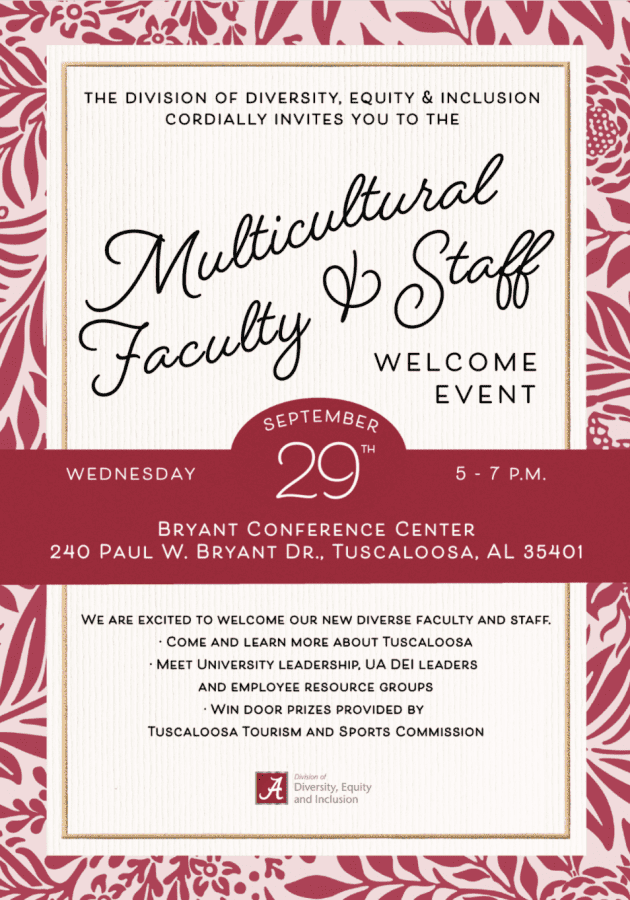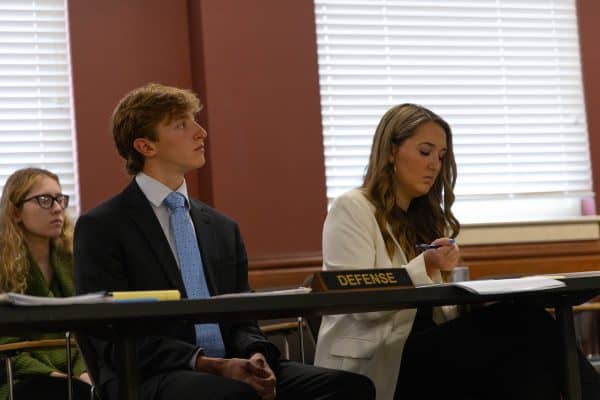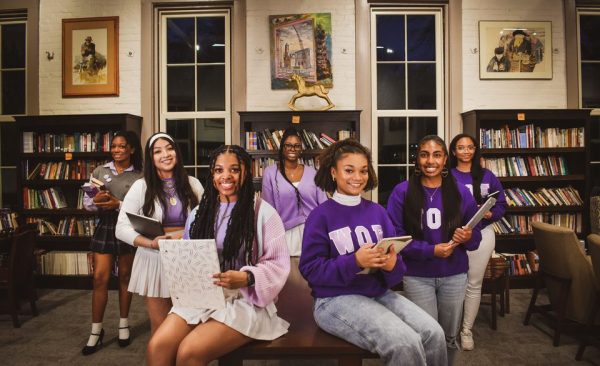‘You are welcome’: Multicultural Faculty and Staff Welcome offers chance for community
September 29, 2021
The University of Alabama’s Division of Diversity, Equity and Inclusion offered new UA faculty and staff the chance to meet their peers and find community at the Multicultural Faculty and Staff Welcome Event on Wednesday, Sept. 29.
“It’s another way to say, ‘You are welcome,’ and that we acknowledge that you’re just not moving your 9 to 5 to our campus; you’re moving your entire life to The University of Alabama,” said G. Christine Taylor, the vice president and associate provost for the Division of DEI.
The event featured opportunities to learn about several diverse campus groups, including the Black Family and Staff Association, the Chinese Faculty and Staff Association, the Hispanic/Latinx Faculty and Staff Association, the Jewish Faculty and Staff Association, the Korean Faculty and Staff Association, and the Capstone Alliance.
A similar faculty and staff welcome event was hosted by the Division of DEI in October 2020. Taylor said the feedback from the event, and other events in previous years, showed a positive impact on their targeted demographics.
According to the University’s Office of Institutional Research and Assessment, 78% of faculty members in fall 2019 were white, 7% were Asian and 7% were Black.
In response to this statistical imbalance, the University published its Path Forward Diversity Report in 2020. The report named increasing and retaining a diverse faculty and staff as one of the University’s four main goals.
Taylor said hosting the Multicultural Faculty and Staff Welcome Event was one among 75 recommendations provided by the report.
In May, the University published a Path Forward Progress Update, which provided updates on diversity efforts among staff.
“I think that what all of higher education is doing, and all of corporate America is doing, is acknowledging that people come and bring gifts and talents that are packaged very differently,” Taylor said.
Throughout Taylor’s career, she has been the only Black woman in organizations. As she reflected on her difficulties finding a sense of community, she said she hopes that this effort will help new faculty and staff build a sense of community in Tuscaloosa.
Taylor said she hopes the University can “create an environment in which people can come and have a sense of belonging, which means, ‘I can be my authentic self.’”We 25











